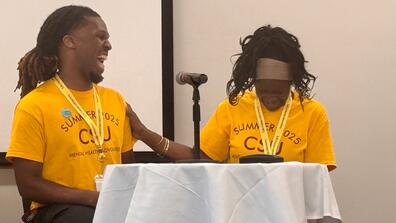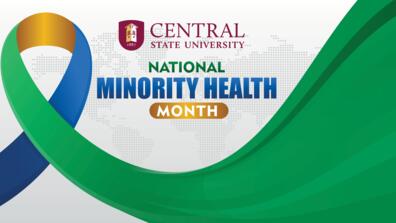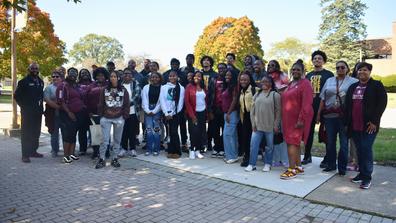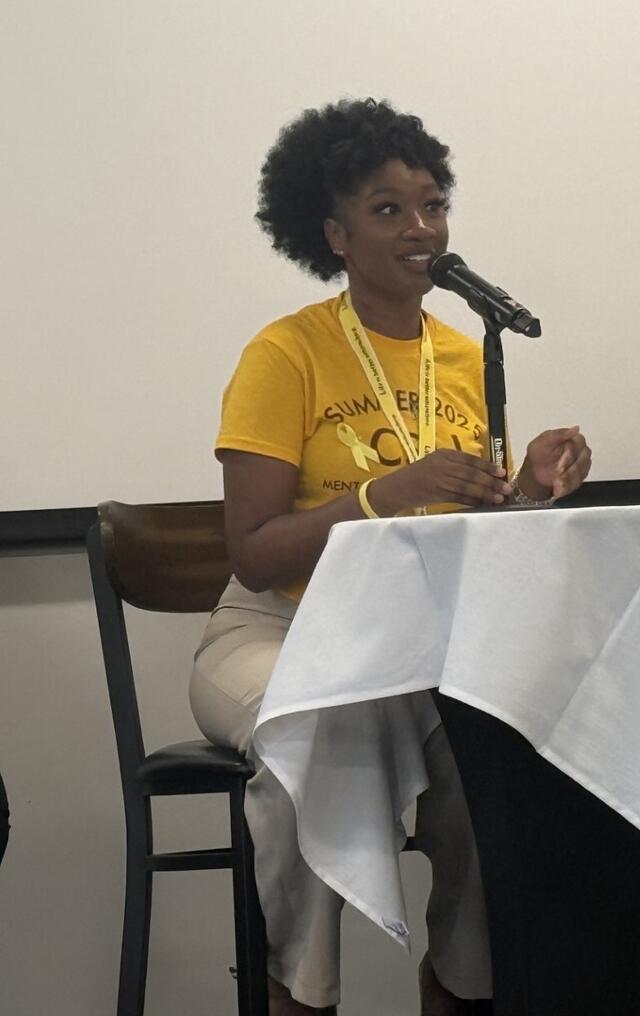
Healing out loud: Reflections by Alexis Luckie
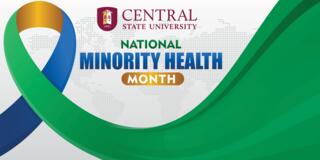
Editor's note: This column by Alexis Luckie, a sophomore psychology major, concludes our Minority Mental Health Month series. If you were inspired by this series and would like to share your story, email media@centralstate.edu.
Mental health isn’t just something I study, it's personal. I didn’t always know I’d be an advocate for mental health, but when my dad passed away on Christmas Day in 2020, my entire world changed. I was just 14. That kind of pain doesn’t go away overnight; it follows you, and if you’re not careful, it can take over. For a while, I didn’t really know how to deal with it. I just pushed through, like I thought I was supposed to. But deep down, I was struggling in silence.

Now, I’m 18 years old and a sophomore at Central State University, majoring in psychology. I’m involved on campus in organizations like NAACP and Praise in Motion, but one of the most important roles I’ve taken on is being a mental health advocate, especially for people who look like me. I’ve realized that our community doesn’t always talk about mental health the way we should. We say, “just pray about it,” or “stay strong,” but we rarely ask, “How are you really feeling?” And honestly, that needs to change.
When my dad died, I felt I needed to be strong. Life was going to move on regardless of whether my mental health was OK or not. Everyone around me seemed to expect that my life would just go back to normal immediately after. But grief doesn’t work like that. Some days I was numb. Other days I was angry or sad and didn’t know why. I didn’t know how to put those feelings into words, and I definitely wasn’t ready to accept that it was OK to not be OK.
That’s why I care so much now.
Because I know what it’s like to suffer quietly, to show up every day with a smile while you’re breaking down inside. And I don’t want anyone else to go through that alone — especially young Black kids and teens who already carry so much.
In the Black community, we’ve always been told to be strong. That’s something we’re proud of and rightfully so. We’ve survived so much as a people. But sometimes, being “strong” turns into silence. It turns into brushing off depression, ignoring anxiety, and avoiding therapy because we think it makes us look weak. It doesn’t. Therapy isn't a weakness. Crying isn't a weakness. Talking about what you’re going through isn't a weakness. It's healing. It's necessary.
I think our generation is starting to do better. More of us are open to talking about mental health, going to therapy, and checking in on each other in real ways. Social media plays a big role, too; people are using their platforms to share their stories and break the stigma. But we still have a long way to go.
Mental wellness should be just as important as physical health. You wouldn’t ignore a broken bone, so why ignore a broken heart or mind, especially when you’re dealing with grief, stress, trauma, or just trying to survive everyday life as a young Black person in America?
My dream is to become a mental health specialist for young African American students in my community. I want to be the person I needed when I was younger, someone who listens, understands, and doesn’t judge.
I want to help create safe spaces where it’s OK to talk about your emotions, your trauma, your grief, and where healing isn’t something we’re ashamed of, but something we embrace.
If there’s one thing I’ve learned, it’s that healing takes time. It’s not a straight line. Some days are harder than others. But talking helps. Community helps. Therapy helps. And above all, giving yourself grace helps.
Losing my dad will always be a part of my story, but so is the strength I found afterward — not the kind of strength that hides pain, but the kind that faces it head-on and chooses to grow. That’s the kind of strength I want to inspire in others.
We don’t have to keep suffering in silence. We deserve to be heard. We deserve to heal. And we absolutely deserve to be well.
